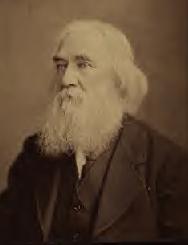Greetings from Orange Beach! I got in tonight at 9:30, a bit later than I’d intended, but thereon hangs a tale.
 I gave a midterm in class today, and I’d planned to leave right after. But while I was invigilating (as the British say) the midterm, I was reading Michael Thompson’s new book Life and Action: Elementary Structures of Practice and Practical Thought (a great book, though with a lousy cover – Brownian motion is not a good visual metaphor for Thompson’s conception of life and action), and I came across a passage that gave me an idea for some remarks to add to my Spooner paper.
I gave a midterm in class today, and I’d planned to leave right after. But while I was invigilating (as the British say) the midterm, I was reading Michael Thompson’s new book Life and Action: Elementary Structures of Practice and Practical Thought (a great book, though with a lousy cover – Brownian motion is not a good visual metaphor for Thompson’s conception of life and action), and I came across a passage that gave me an idea for some remarks to add to my Spooner paper.
Thing is, I’m giving a version of the Spooner paper as my presidential address at the APS this weekend (my second presidential address here; check out the first one, from 2002), and I wanted to include my latest thoughts. So I paused to ponder, write, and print; hence my tardy departure for the Gulf. Anyway, here’s the new material:
In his recent book Life and Action, Michael Thompson considers an example from Rawls involving a society whose practice of promising differs from our own in various ways we would regard as unreasonable – regarding promises as binding even in emergency situations, for example, or even when made while talking in one’s sleep. If one holds, as Rawls does, that such a society simply does not have our institution of promising, but has a different, unreasonable one instead, and if one further holds that the binding force of promises depends on the reasonableness of the institution of promising, it would seem to follow, Thompson points out, that none of the promises made in that society should be regarded as binding, even the ones that our own institution would approve. (Analogously, if one holds that the duty not to steal depends on the reasonableness of the institution of property, it would seem to follow that in any society whose property institutions have any unreasonable features, such as slavery, their institution of property is unjust overall, and so no act of theft in that society warrants condemnation.)
Finding such implications counterintuitive, Thompson suggests that we keep the claim that the normative status of individual instances depends on the reasonableness of the practice as a whole, but abandon the claim that the deviant cases are genuinely part of the practice:
No one will hold that just any series of actions … can exhibit the sort of unity we intend in bringing things under a single practical disposition. And there is no reason to imagine that just any general schedule of action might be employed to describe such a thing, or, equivalently, that to any subtle diversity of such schedules there must correspond a possible diversity of dispositions. … Suppose, for example, that I return a deposit someone has made to me, a book for example, thinking “It is his: I must give it back” … and that I have often done this sort of thing. Later, though, I return some autumn leaves that have blown from someone’s red maple onto my lawn, again thinking “They are hers; I must give them back.” Need we hold that the practical disposition manifested in my earlier acts must or could have shown up in an act of leaf-return? Need we hold that the disposition that was manifested in those sensible earlier acts is any different from that displayed in the like acts of a more reasonable person who would have let the leaves go? That returning the book and ‘returning’ the leaves struck me as ‘the same’, that I didn’t feel any difference, cannot be supposed to establish the identity. The disposition that operates in my intuitively reasonable acts of return, we might think, is no different from the one that operates in all the acts of return of a person who lets leaves blow by; something else is at work in me in cases where I busy myself returning them. (Michael Thompson, Life and Action (Harvard 2008), p. 190.)
On this reading, the “inner constitution of the practice” (say, of promising) is the same in our society and in societies that count promises as binding when made in sleep and so on; it’s just that this inner constitution “is associated, in the deviant communities, with a widespread error or a superstitious religious conviction or something on the order of a fad – disturbance, at all events, and mere dross ….” (p. 186) I suggest that for Spooner, the legal institutions of nonlibertarian societies likewise have the same libertarian “inner constitution” as those of libertarian societies, while their nonlibertarian practices are alien accretions – so that when a judge in the deviant society condemns a murderer and commands the return of an escaped slave, she is in the first case, but not the second, expressing the same practice as her libertarian counterpart – and so in the first case is applying law while in the second case she is applying something that stands to law as fool’s gold stands to gold.
 I gave a midterm in class today, and I’d planned to leave right after. But while I was invigilating (as the British say) the midterm, I was reading Michael Thompson’s new book
I gave a midterm in class today, and I’d planned to leave right after. But while I was invigilating (as the British say) the midterm, I was reading Michael Thompson’s new book